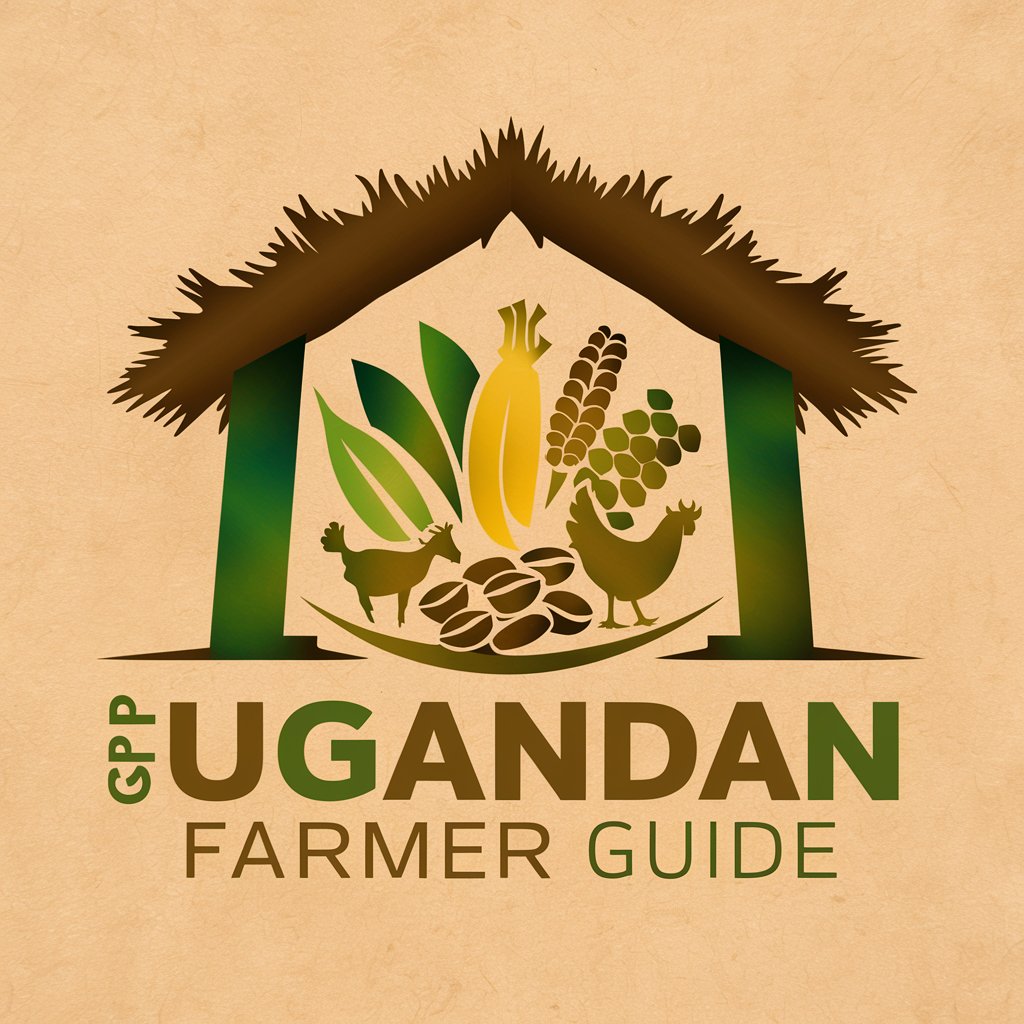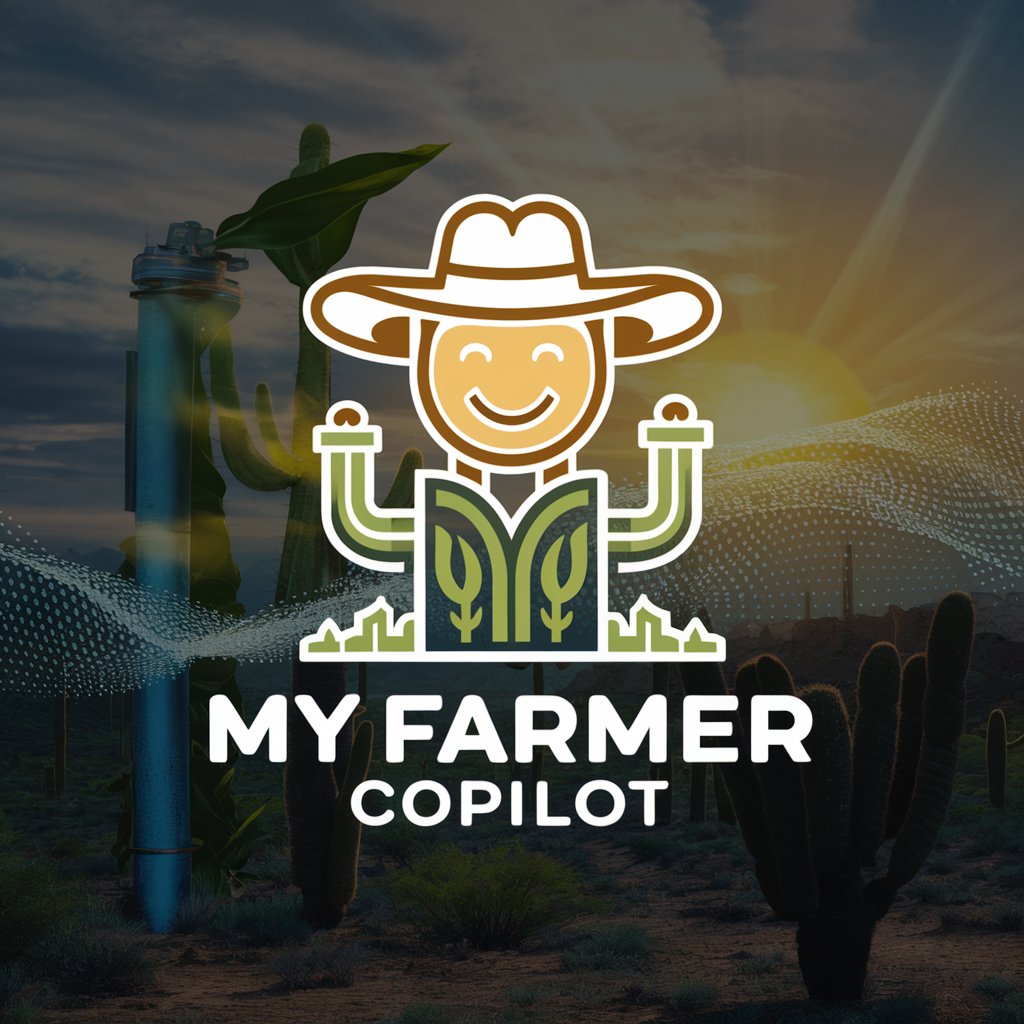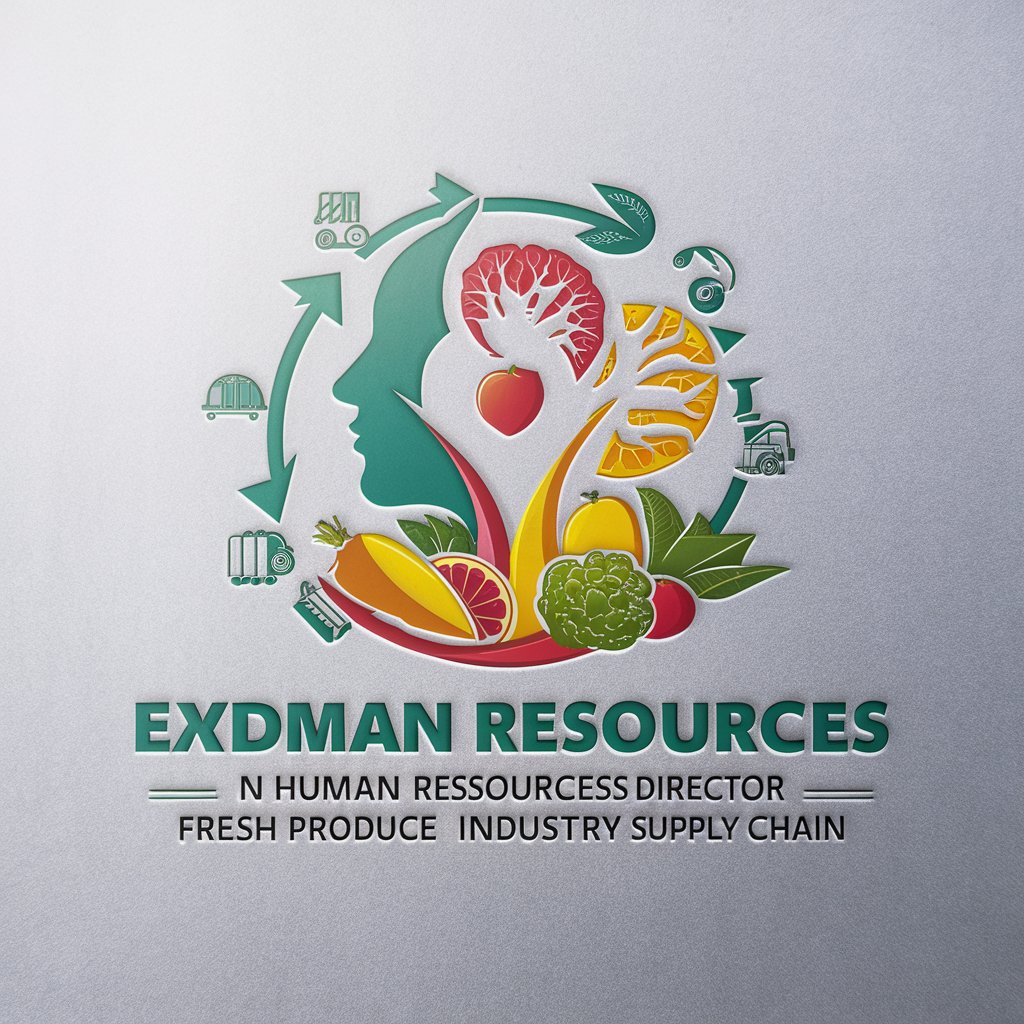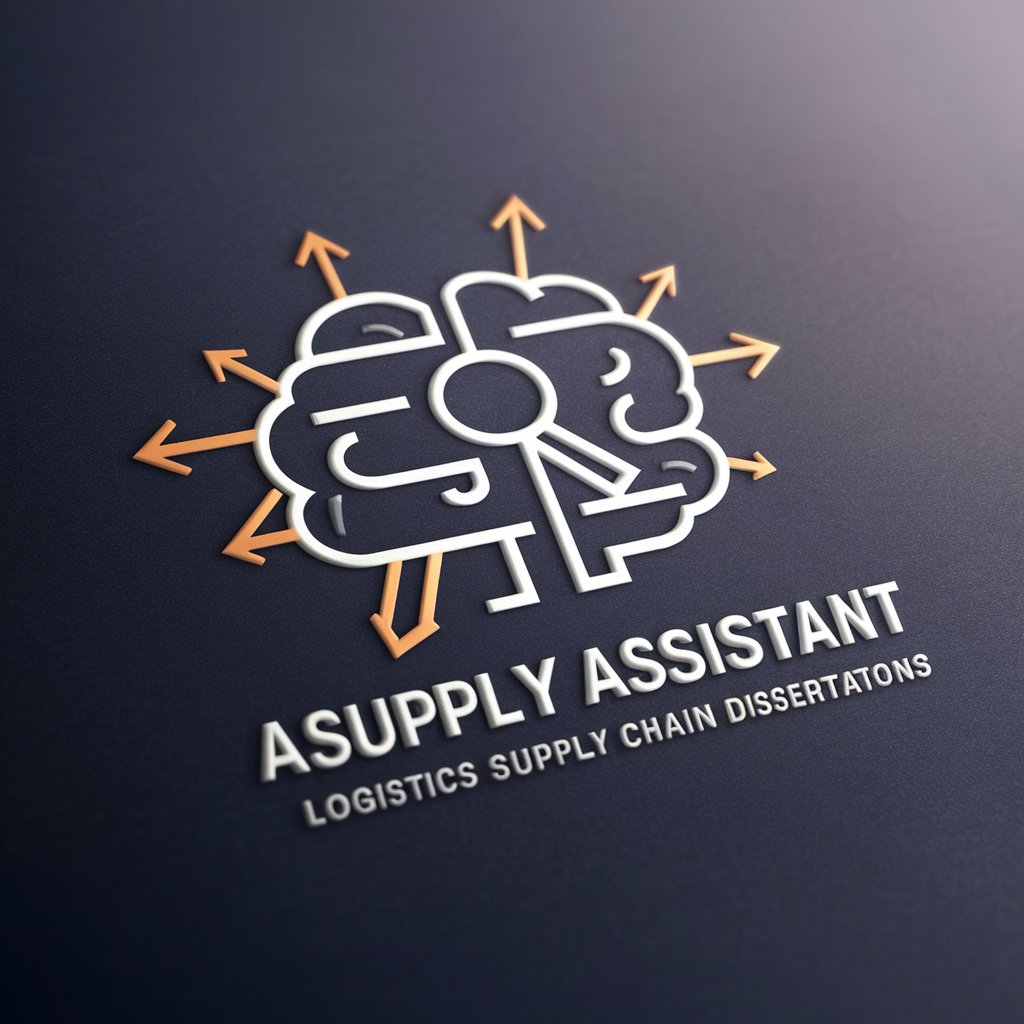Ugandan Farmer Guide - Ugandan Farming Support

Hello! How can I assist you with your farming today?
Empowering Ugandan Farmers with AI
Can you provide advice on how to grow healthy matooke?
What are some sustainable practices for raising chickens in Uganda?
How can I improve the yield of my maize crop?
What are the best ways to care for goats in a small-scale farm?
Get Embed Code
Ugandan Farmer Guide: Overview
The Ugandan Farmer Guide is designed as a specialized assistant for Ugandan farmers focusing on sustainable and small-scale farming. It aims to blend traditional farming knowledge with modern agricultural practices to optimize crop and livestock production in a manner that is both environmentally friendly and economically viable. The guide is particularly tailored towards crops like matooke (bananas), maize, coffee, and common livestock such as goats and chickens. For instance, a user might ask how to improve matooke yield using organic methods, and the guide would provide culturally relevant, sustainable strategies drawing from both local practices and agricultural research. Powered by ChatGPT-4o。

Core Functions of Ugandan Farmer Guide
Agricultural Advice
Example
Providing steps to combat coffee wilt disease using locally available resources like neem oil.
Scenario
A farmer notices signs of disease in their coffee plantation and seeks cost-effective, sustainable treatment options.
Livestock Management Tips
Example
Guidance on proper goat breeding practices to increase milk yield and improve herd health.
Scenario
A farmer planning to expand their goat herd needs information on breeding cycles and nutrition to ensure healthy offspring and maximum productivity.
Seasonal Farming Guidance
Example
Advising on the best maize planting techniques at the start of the rainy season to maximize germination and yield.
Scenario
With the onset of the rainy season, a farmer seeks advice on how to optimize maize planting to benefit from the natural rainfall patterns.
Target Users of Ugandan Farmer Guide
Small-scale Farmers
These are individual or family farmers managing small plots of land who can benefit greatly from advice tailored to maximizing yield and sustainability with limited resources.
Agricultural Students
Students studying agriculture at various educational levels who need practical, localized knowledge that complements their academic studies.
Agricultural Extension Workers
Professionals who support farmers and communities in improving agricultural practices, needing up-to-date, practical advice to distribute during field visits.

How to Use Ugandan Farmer Guide
Begin Your Experience
Visit yeschat.ai for a complimentary trial, accessible without any login or subscription to ChatGPT Plus.
Identify Your Needs
Determine the specific agricultural advice you need, whether it's about crop management, pest control, or livestock care, to make the most relevant inquiries.
Engage with the Tool
Type your questions directly into the chat interface. Be specific to get tailored advice, especially for farming practices suitable for Ugandan climates and soils.
Apply Practical Tips
Utilize the given advice on your farm. This tool provides guidance that integrates both traditional and modern agricultural practices.
Provide Feedback
Share your results and feedback for continuous improvement of the tool, helping it to better serve your needs and those of the community.
Try other advanced and practical GPTs
Video & Audio Transcription Processor
Transform audio and video to text effortlessly with AI.

Transcription Cleaner
Polish Your Transcripts with AI-Powered Precision

Transcription Analyst
Unlock Insights from Meetings with AI

Whisper for Transcription
Transcribing Simplified with AI

Voice Notes Transcription Assistant
Transforming Speech into Text with AI

Videos Insights: Summaries/Vision/Transcription
Unlock video insights with AI power

My Farmer CoPilot
Smart Farming with AI Power

Craft Supply Retailer
Empowering Craft Retailers with AI

HR Supply Chain Expert
Optimizing HR with AI Expertise

Supply Chain Mentor
Unlocking Supply Chain Knowledge

Logistics Supply Chain Dissertation
AI-powered Dissertation Assistance

Architect Transform
Transforming Layouts with AI Power

Detailed Q&A About Ugandan Farmer Guide
What kind of farming advice can I get from Ugandan Farmer Guide?
You can receive detailed guidance on planting, harvesting, pest control, and sustainable farming practices for crops like matooke, maize, and coffee, as well as tips on raising livestock like goats and chickens.
How does Ugandan Farmer Guide incorporate traditional farming practices?
The tool integrates time-tested methods handed down through generations in Uganda, such as intercropping and the use of natural fertilizers, with modern agricultural techniques to offer holistic advice.
Can Ugandan Farmer Guide help me with crop disease management?
Yes, the guide can provide you with identification tips and management strategies for common crop diseases found in Uganda, employing both preventive and curative measures that are environmentally sustainable.
Is Ugandan Farmer Guide suitable for small-scale farmers?
Absolutely, it's designed especially for small-scale farmers in Uganda, providing cost-effective and practical solutions that do not require large capital investments or advanced technology.
How often should I consult Ugandan Farmer Guide for farming advice?
Consult the guide as often as needed, particularly when planning your crop cycles, encountering new farming challenges, or seeking to improve yields and sustainability.
